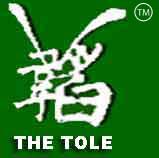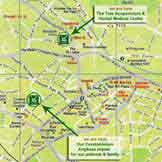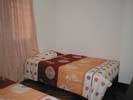|
|
||||||||||||||||||||||
|
||||||||||||||||||||||
|
||||||||||||||||||||||
| ADHD (attention deficit hyperactivity disorder) and ADD (attention deficit disorder)
Attention deficit hyperactivity disorder (ADHD) and attention deficit disorder (ADD) refer to a range of problem behaviours associated with poor attention span. These may include impulsiveness, restlessness and hyperactivity, as well as inattentiveness too short attention spend, don't listen to orders and advise and often prevent children from learning and socialising well. Attention deficit hyperactivity disorder (ADHD) is sometimes referred to as hyperkinetic disorder. |
||||||||||||||||||||||
| What is ADHD? | ||||||||||||||||||||||
| (ADHD) Attention deficit hyperactivity disorder often prevents children from learning and socialising well. Attention deficit hyperactivity disorder (ADHD) Attention deficit hyperactivity disorder and attention deficit disorder (ADHD) Attention deficit hyperactivity disorder refer to a range of problem behaviours associated with poor attention span. These may include impulsiveness, restlessness and hyperactivity, as well as inattentiveness, and often prevent children from learning and socialising well. (ADHD) Attention deficit hyperactivity disorder is sometimes referred to as hyperkinetic disorder. | ||||||||||||||||||||||
| Symptoms of Attention deficit hyperactivity disorder (ADHD) | ||||||||||||||||||||||
Attention dificite difficulties : Fails to pay close attention to detail or makes careless errors during work or play. |
||||||||||||||||||||||
| Impulsivity - Attention deficit hyperactivity disorder (ADHD) | ||||||||||||||||||||||
At least one of the following symptoms must have persisted at least for three months to an extent that is unusual for their age and level of intelligence: Blurts out answers before the questions have been completed. |
||||||||||||||||||||||
| Attention deficit hyperactivity disorder (ADHD) | ||||||||||||||||||||||
Epileptic seizures can cause a child to become drowsy, impairing their attention. Epilepsy can also cause unusual behaviour and lead to abnormal perceptions. Hearing problems such as deafness or glue ear can make it hard for a child to follow instructions and make them appear inattentive. Reading problems, making it hard to complete tasks or follow instructions. Obsessive compulsive disorder leads to people following strange rituals that preoccupy their thoughts and distract their attention. Tourette's syndrome involves repetitive, involuntary jerking movements of the body and sudden outbursts of noise or swearing. Autism and Asperger's syndrome often lead to difficulties in understanding and using language. Prolonged periods of insufficient sleep, causing poor concentration. Some children may be very active or be easily distracted or have difficulty concentrating. If these behaviours are relatively mild, they should not be considered a disorder. |
||||||||||||||||||||||
| Others difficulties that occurs alongside Attention deficit hyperactivity disorder (ADHD) | ||||||||||||||||||||||
Attention deficit hyperactivity disorder (ADHD) often occurs alongside other difficulties and is not the sole cause of problem behaviour. Children may exhibit temper tantrums, sleep disorders, and be clumsy. Other behavioural problems that occur with Attention deficit hyperactivity disorder (ADHD) include: confrontational defiant behaviour, which occurs in most of these kids. The child loses their temper, argues and refuses to comply with adults and deliberately annoys others. conduct disorders occur in at least 25 per cent of children. The child may be destructive or show deceitful behaviour such as lying, breaking rules and stealing. specific learning difficulties, including dyslexia, occur in 25-30 per cent of children. severe clinical depression occurs in about 30 per cent of children. anxiety disorders occur in 30 per cent of children. Brain injuries due to birth trauma or pre-birth problems. The brain structures believed to be linked to the development of Attention deficit hyperactivity disorder (ADHD) are vulnerable to hypoxic damage during birth. The damage is caused by inadequate oxygen (QI flow) reaching parts of the brain while blood flow is reduced. Environmental conditions: |
||||||||||||||||||||||
| Attention deficit hyperactivity disorder (ADHD) diagnosis | ||||||||||||||||||||||
Observations to the assessment of a child with possibleAttention deficit hyperactivity disorder (ADHD). There is no single diagnostic test for Attention deficit hyperactivity disorder (ADHD) so different sorts of information needs to be gathered, such as the following: Medical history Several medical conditions are known to be associated with Attention deficit hyperactivity disorder (ADHD). These include fragile-X syndrome, fetal alcohol syndrome, G6PD deficiency, phenylketonuria and generalised resistance to thyroid hormone. Accidents, operations and chronic medical conditions such as epilepsy, asthma and heart, liver and kidney disorders all need to be taken in to account. Also of possible relevance is any medication the child is taking, as well as any adverse reactions they have had to medication in the past. Past psychiatric history: Educational history: Family history: Social assessment: |
||||||||||||||||||||||
|
|
|||||||||
|
|||||||||
|
|||||||||
|
|||||||||
|
|||||||||







